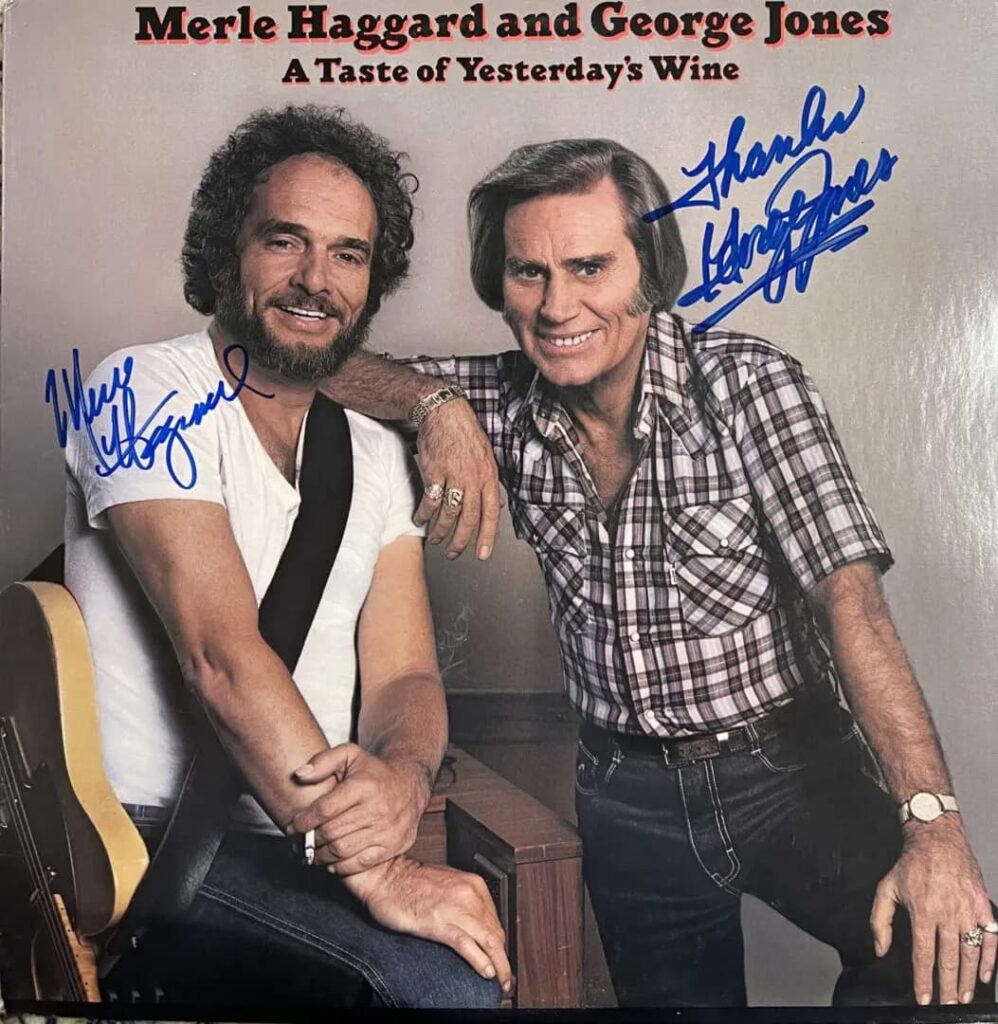
Two Titans, One Timeless Tune: The Bitter-Sweet Reunion of the Road-Worn Soul
There are certain moments in country music history that feel less like a record release and more like an iconic summit—a gathering of titans whose combined experience could fill a thousand honky-tonk stages. The 1982 duet by Merle Haggard & George Jones, “Yesterday’s Wine,” is exactly one of those moments. It wasn’t just a collaboration; it was a conversation between two of the genre’s greatest, most tragically relatable voices, offering a master class in authentic, heartbreaking delivery.
The most important detail to remember is that this track was a massive, late-career triumph for both singers. Released in August 1982, “Yesterday’s Wine” became an immediate classic, climbing to the coveted Number 1 position on the Billboard Hot Country Songs chart, holding that spot for one week and cementing its place as the signature track from their 1982 collaboration album, A Taste of Yesterday’s Wine. The song itself, however, was not originally a Haggard and Jones tune. It was penned by their fellow outlaw legend, Willie Nelson, and served as the title track for his philosophical, almost spiritual 1971 concept album. While Nelson’s original cut was introspective and sparse, it was the 1982 cover that truly aged the song into its classic status.
The story behind this duet is one of mutual admiration and deep, shared history. George Jones and Merle Haggard were spiritual brothers in country music, both renowned for their unparalleled vocal talent and their well-documented battles with personal demons—the hard drinking, the wayward behaviour, the toll of the road. When they finally teamed up, they were aging, weathered stars who had lived the very lives their songs described. Willie Nelson’s lyrics, which frame the song as a conversation between two old friends who run into each other at a bar, took on a profoundly authentic resonance when sung by The Hag and The Possum.
The meaning of “Yesterday’s Wine” is simple yet profound. It’s a reflective dialogue on the passage of time and the weight of a life lived hard. The two men in the song compare themselves to “yesterday’s wine,” acknowledging that their wild, youthful days are behind them, yet their essence—their spirit, their memories, their fundamental selves—is still present, just aged and changed by time and life’s experiences. The lines, “We’re yesterday’s wine, aging with time, like yesterday’s wine,” aren’t a lament; they are an acceptance, a quiet nod to the scars and wisdom accumulated over the years. For listeners of a certain age, who have their own memories of youthful missteps and the ache of looking back, the song evokes a deep, comforting sense of shared humanity.
When you listen to the record now, with its lush, polished early-80s production by Nashville maestro Billy Sherrill—complete with unexpected flourishes of a brass section—it is the interplay of their voices that matters most. Jones’s incomparable, mournful tenor contrasts perfectly with Haggard’s smoother, road-worn baritone. It is two old souls swapping war stories and finding solace in their shared vintage. This wasn’t just a hit song; it was a powerful statement from two artists reminding the world that the deepest kind of country music would always remain potent, full-bodied, and, like the very best liquor, better with age.